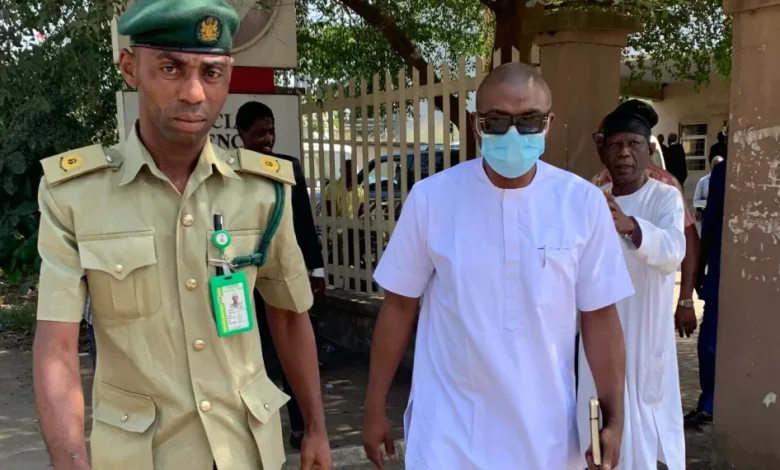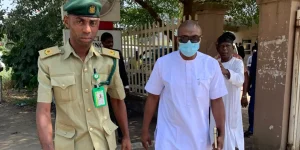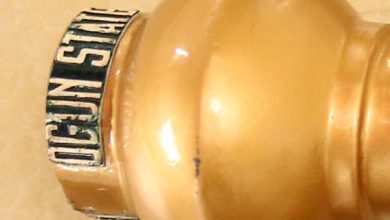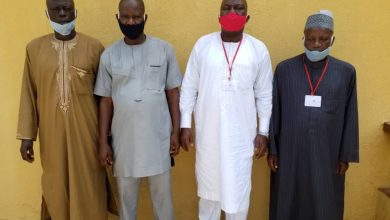
Lagos state government approaches supreme court over acquittal of doctor who raped minor
The Lagos State Government has approached the Supreme Court against the Court of Appeal’s judgement acquitting Doctor Femi Olaleye of raping a minor, and to uphold the earlier conviction of the Lagos medical practitioner by the trial court
Penpushing reports that it is recalled that Olaleye was convicted and sentenced to life imprisonment by the High Court on two counts of defilement and sexual assault by penetration of his wife’s 16-year-old niece.
The Medical Director at Optimal Cancer Care, was arraigned in 2022 by the Lagos State Government at the Sexual Offences and Domestic Violence Court, in Ikeja, Lagos, and was in October 2023 convicted and sentenced him to life imprisonment.

Penpushing further reports that in a twist of event the Court of Appeal, Lagos division, on November 29,2024 discharged and acquitted the convict citing errors in the lower court’s judgement, describing the evidence provided by the prosecution as tainted and unreliable.
The civil rights groups in response petitioned the Lagos State Attorney General, Lawal Pedro, a Senior Advocate of Nigeria (SAN), urging him to challenge the decision at the Supreme Court to restore public trust in the justice system.
Penpushing also reports the Lagos State Government on December 27, 2024 filed its notice of appeal at the Supreme Court against the Court of Appeal’s decision, and in the filing signed by, Director of Public Prosecutions (DPP), Lagos State of Ministry of Justice, Babajide Martins, the state government urged the court to set aside the decision of the Court of Appeal and affirm the conviction and sentences of Olaleye by the trial court.

“The Defendant/ Respondent is not in custody having been discharged and acquitted by the Court of Appeal from the conviction and sentence to life imprisonment by the High Court of Lagos State for the offences of Sexual Assault by penetration and Defilement of a Child.”
Penpushing reports that the Lagos State Government gave three grounds of appeal against the lower court’s decision, arguing that the judges of the Court of Appeal erred in law when they held in total disregard of Section 209 (2) of the Evidence Act, 2011 and the decision of the Apex Court in Dagaya V State (2006) LPELR 912 (SC) that sworn evidence of PW2, a child of above fourteen (14), requires corroboration.”
The appellant argued that the Court of Appeal made a legal error by ruling that certain extrajudicial statements marked Exhibits H, H1, and H2 were improperly admitted as evidence because the trial court failed to conduct a “trial within a trial” to determine their admissibility.
Penpushing further reports that the state government maintained that the trial court rightly admitted the statements and that a trial-within-trial was not necessary, with the withdrawal of the objection to the confessional statement.
The appellant in same vein, faulted the Court of Appeal’s decision that the prosecution’s failure to call two key witnesses was fatal to the case of the prosecution, while the government emphasized that the prosecution was not bound by any law to call all proposed witnesses.’

Penpushing also reports that it noted that, for instance, the absence of the Divisional Police Officer (DPO), Patricia Amadi, who was not the investigating police officer in the case, did not harm the prosecution’s case, stressing that the evidence from the actual investigating officer, Prosecution Witness (PW6), was sufficient.
The Lagos state government stated that the two witnesses did not detract from the prosecution’s case, because the corroboration from the victim and other witnesses proved the necessary elements of the offence.
FOOTNOTE: You want to share story with us? You want to advertise with us? You need publicity for product, or service, or event? Contact us on WhatsApp +2348073463653 or email penpushing@yahoo.com







